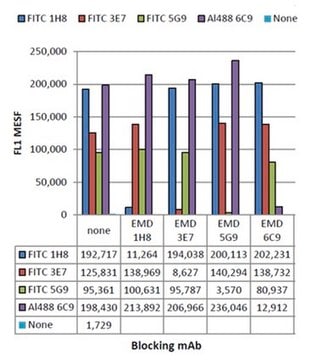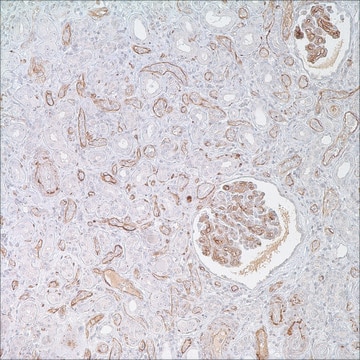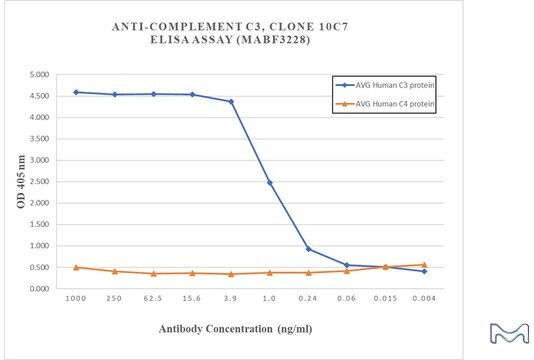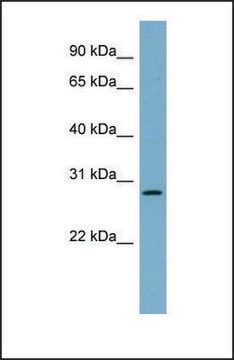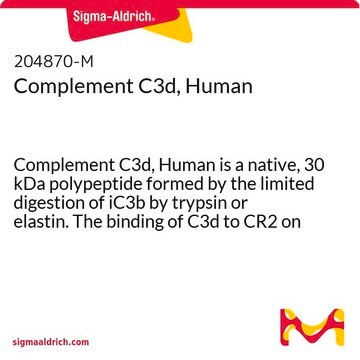MABF972
Anti-Complement C3b/iC3b Antibody, clone 3E7, neutralizing
clone 3E7, from mouse
Synonyme(s) :
Complement C3, C3 and PZP-like alpha-2-macroglobulin domain-containing protein 1, Complement C3 beta chain, C3-beta-c, C3bc, Complement C3 alpha chain, C3a anaphylatoxin, Acylation stimulating protein, ASP, C3adesArg, Complement C3b alpha′ chain, Complem
About This Item
Produits recommandés
Source biologique
mouse
Niveau de qualité
Forme d'anticorps
purified immunoglobulin
Type de produit anticorps
primary antibodies
Clone
3E7, monoclonal
Espèces réactives
human, primate
Technique(s)
flow cytometry: suitable
immunocytochemistry: suitable
neutralization: suitable
Isotype
IgG1κ
Numéro d'accès NCBI
Numéro d'accès UniProt
Conditions d'expédition
wet ice
Modification post-traductionnelle de la cible
unmodified
Informations sur le gène
human ... C3(718)
Description générale
Spécificité
Immunogène
Application
&
& Blood. 101(3):1071-1079).
Inflammation et immunologie
Immunoglobulines et immunologie
Qualité
Description de la cible
Forme physique
Stockage et stabilité
Recommandations relatives à la manipulation du produit : dès réception, et avant le retrait du bouchon, centrifuger le flacon et mélanger délicatement la solution. Répartir en aliquotes dans des microtubes à centrifuger et conserver ces derniers à -20 °C. Éviter les congélations/décongélations répétées, qui peuvent détériorer les IgG et nuire aux performances du produit.
Autres remarques
Clause de non-responsabilité
Vous ne trouvez pas le bon produit ?
Essayez notre Outil de sélection de produits.
Code de la classe de stockage
12 - Non Combustible Liquids
Classe de danger pour l'eau (WGK)
WGK 2
Point d'éclair (°F)
Not applicable
Point d'éclair (°C)
Not applicable
Certificats d'analyse (COA)
Recherchez un Certificats d'analyse (COA) en saisissant le numéro de lot du produit. Les numéros de lot figurent sur l'étiquette du produit après les mots "Lot" ou "Batch".
Déjà en possession de ce produit ?
Retrouvez la documentation relative aux produits que vous avez récemment achetés dans la Bibliothèque de documents.
Notre équipe de scientifiques dispose d'une expérience dans tous les secteurs de la recherche, notamment en sciences de la vie, science des matériaux, synthèse chimique, chromatographie, analyse et dans de nombreux autres domaines..
Contacter notre Service technique